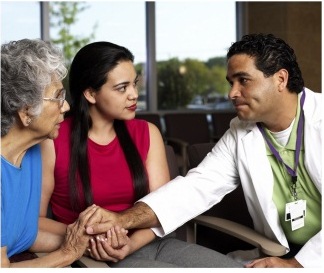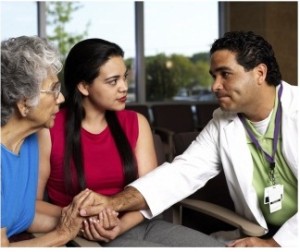
 Consider this:
Consider this:
- A 2011 survey reported in Health Affairs of 800 recently hospitalized patients found that only 53 percent of them felt that their physicians were empathic and caring.1
- In one study where doctor-patient encounters were videotaped, researchers found that doctors often overlooked or dismissed signs of distress communicated by patients, providing empathic responses only 22 percent of the time.2
- There is strong evidence that compassionate care not only improves the patient experience but health outcomes, as well.3-4
In her New York Times best-selling book, The Empathy Exams, Leslie Jamison writes, “Empathy isn’t just something that happens to us—a meteor shower of synapses firing across the brain—it’s also a choice we make: to pay attention, to extend ourselves. It’s made of exertion, that dowdier cousin of impulse.”
Storytelling Fosters Connection and Empathy
One powerful way of naturally “extending ourselves” is through storytelling. It turns out that storytelling creates a strong neurological response, as our brains produce both cortisol (during tense parts of the story) which allows us to focus and oxytocin (during happier parts of the story) which fosters connection and empathy.5
An innovative new program developed by medical students at Brown University draws on storytelling, by patients and family members of patients, to help spark empathy and to illuminate how “best” to deliver bad news. NoEasyWay.org was conceived by a group of medical students dedicated to informing their training and future practice with patient-centric values. In addition to their official medical school curriculum on this topic that involves lectures, readings, and discussions among themselves and their professors (all of which are produced and delivered by physicians), these students recognized the value in diversifying the perspectives. They felt they needed to learn from the recipients themselves.
NoEasyWay.org invites stories from those who have received bad news. It seeks anonymous personal stories of receiving bad news with the objective of using these stories to influence their medical education and training. They say “we want to learn from the experts.”
As health care delivery evolves towards greater partnership between healthcare providers, patients, and families, inviting patients to help inform their medical training is a simple yet highly innovative move by a group of medical students who seek to extend themselves. Soliciting stories is a powerful way to spark empathy and what better way than going to the source to understand what goes right and what goes wrong when bad news must be delivered? Maybe you have a narrative to contribute?





1 Comment
Thanks for this, Pamela. It is one of the great signs of hope that things really are changing in the realm of patient-centered care. Not, of course, the statistics about how few patients currently experience their physicians as empathetic, but this wonderful program created by the medical students at Brown. NoEasyWay is a great example of both the power of storytelling, and the way the winds of change are stirring in healthcare.
1 Trackback